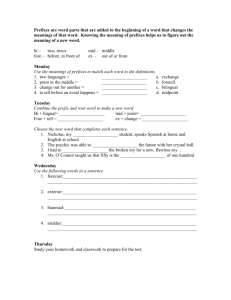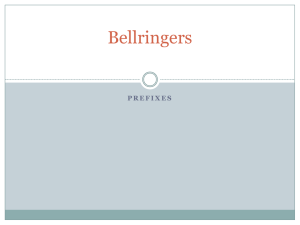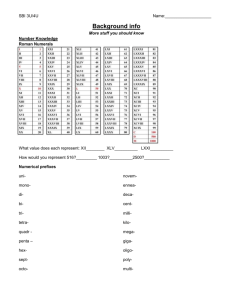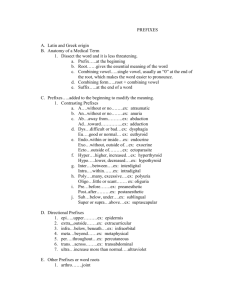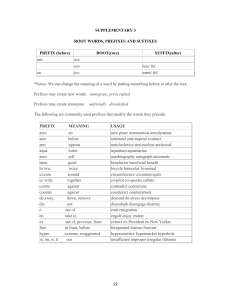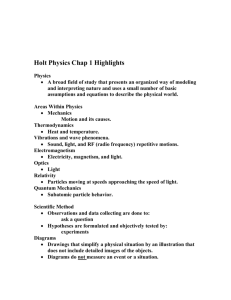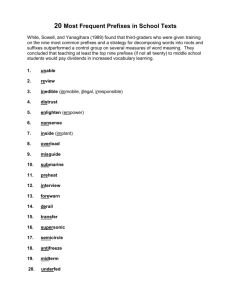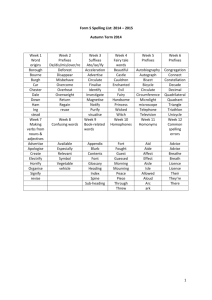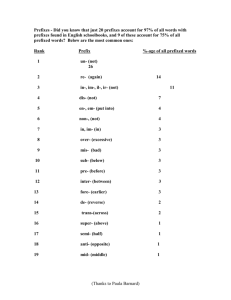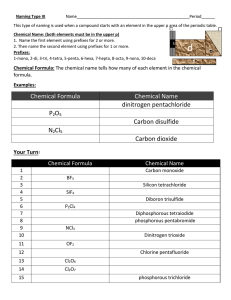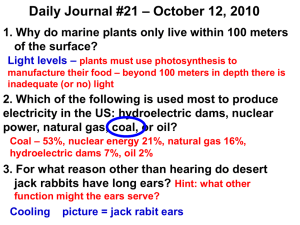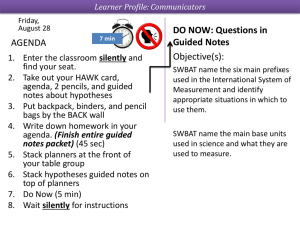Defining relative clause
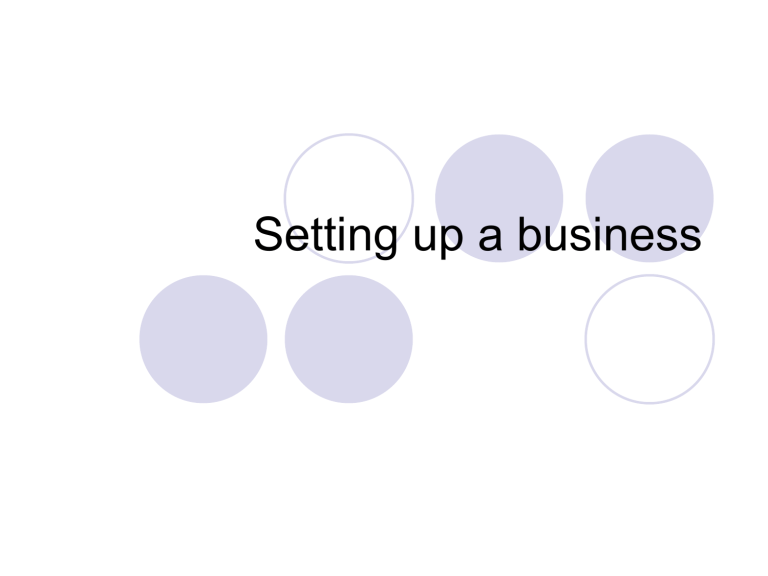
Setting up a business
When you think of setting up a business it is good to know the following:
Many large businesses are public limited companies (plc), which means that the public can buy and sell their shares on the stock exchange.
The minimum share capital for a public limited company is 50 000 pounds, so many new businesses are likely to take one of the following forms:
Sole trader : this is the simplest way of starting a business. You are self- employed and entirely responsible for all aspects of your business.
Partnership : Two or more people start a business together. All partners are responsible for the debts of the partnership, and profits and losses are shared between them.
Private Limited Company : a company can be formed with a minimum of two people becoming its shareholders. They must appoint a director and a company secretary. If the company goes out of business, the responsibility of each shareholder is limited to the amount that they have contributed, they have limited liability. Such a company has a Ltd (Limited) after its name.
When you set up your own business, this is what you have to do:
You must generate ideas : what business will you start?
Then, when you have an idea, you must adapt it to make it different to the competition.
You will need both the technical skills and the financial skills to maintain control , and you will need selling skills to generate business.
Business ownership requires tremendous commitment. Never set up just because you can’t find a job.
Marketing plan:
If you have no market , you have no business .
Product, place, price and promotion are the key components of marketing.
Do you have a market for your idea? Who are your competitors? Why should people use your product, rather than somebody else’s?
Financial backers will want evidence of this market, but you need to convince yourself that self-employment is a better option than working for someone else.
Finance:
Is your idea financially viable ?
Many good ideas don’t make money. Only by drawing up a plan will you find out if yours makes financial sense.
Minimise your overheads : buy only the essential equipment.
If you are going into business with a friend, a partnership drawn up by a lawyer is vital. A
“gentleman’s agreement” is a thing of the past.
Employing people:
You can start as a sole trader but as your business grows you need to take on more staff, your management structure develops and you must have sufficient human resources expertise.
Your responsibilities as an employer are many: you must stick to the employment law, give equal opportunities to all, equal pay, ensure the possibility of parental leave, pension, handle redundancies and deal with retirement.
Protecting your business ideas:
The law is there to protect and safeguard your intellectual property but you’ll need to take action to ensure this safety.
Your intellectual property is likely to be valuable asset so if you have created a new invention it could be commercially good to have a patent which will allow you to control how the invention is exploited.
Prefixes II
The relative clauses
Prefixes can sometimes be added to words to change their meanings. Match the following prefixes with their corresponding definitions :
Inter
Post
Bi
Pre
Multi
Ex
More than one, many
Later than, after
Before, in preparation
Former and still living
Between, among a group
Two, twice, double
Match the prefixes form the previous slide
(inter, post, bi, pre, multi, ex) with the words below:
____ lingual
____ lingual
____ date
____ date
____ arranged
____ national
____ national
____ director
____ graduate
____ personal
____ husband
____ annual
Relative clauses are divided in two groups:
Defining relative clause : it gives vital information and it is essential to the meaning of the sentence.
e.g. : The company is compiling a library of software components that companies can then slot together.
Non-defining relative clause : it gives us extra information which is not essential to understand the main point of the sentence.
e.g. : Apricot, which ran a version of
Microsoft’s operating system, had a particular hardware.
Look at the following sentences and decide whether they are defining or non-defining:
1) The design that we selected was in fact the most expensive. ____
2) Wayne Calloway, who is from our Glasgow office, will be making a presentation of the new project. ____
3) The new investment plan, which was announced on
Wednesday, will take five years to complete. ___
4) The manager who made the mistake lost his job.___
5) This is Jane Stewart, whose company manufactures computer software. ____
6) The Marketing Department is the one whose contribution has been the most significant this year.
____
